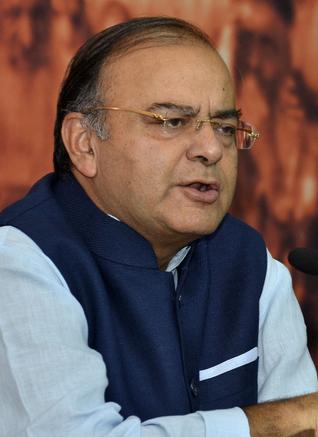New Delhi, September 22: The BJP on Sunday apprehended that state-run NPCIL would waive the right to recourse in a contract expected to be signed soon with U.S. firm Westinghouse and said such a step would be contrary to provisions of the liability laws and compromise state revenue.
The remarks were made by BJP leader Arun Jaitley while commenting on Attorney General’s opinion where an operator of a nuclear plant can waive the right to recourse while signing a contract with nuclear part supplier.
“The Government of India under pressure from the nuclear vendors wanted to eliminate the ‘right of recourse’. Any attempt now to permit the Nuclear Power Corporation of India (NPCIL) to abdicate the right given to an operator, a government company, would be compromising with state revenue.
It would be a contract contrary to provisions of section 17(b) of the (Nuclear Liability) Act,” he said.
The BJP leader said if a public sector firm enters into an agreement with a foreign vendor and abdicates its right to recourse which is for its benefit, “it would not only be violating the provisions of the civil liability for nuclear damages act but also a section of Prevention of Corruption Act wherein a wrongful loss would be caused to the its revenue.”
Commenting on the various stages before which Parliament cleared the Act, Mr. Jaitley said, “The original Bill as introduced in the Lok Sabha, that was referred to the Standing Committee, contained a provision in section 17 which made it mandatory for the right of recourse to emanate from a wilful act of gross negligence.”
Mr. Jaitley said after the Bill was referred to the Standing Committee, government had entered into negotiations with his party which had suggested a series of amendments on the issue.
“Section 17(b) was re-written and a consensus language arrived at which introduced the principle of strict liability.
A wilful act or gross negligence of the supplier was not necessary if it could be demonstrated that equipment supplied by the supplier had a patent or latent defect or that the services rendered were sub-standard,” he said.
The BJP leader observed that this altered language, which was amongst various alternative suggestions to the government, was much to the discomfort of the vendors.
Mr. Jaitley said he had strongly objected to introduction of the word ‘and’ between the clause 17(a) and 17(b) in a “shabbily done” exercise by the government.
“The exercise of the operators right of recourse could not be made dependent on an agreement in writing if there was a patent or latent defect in the equipment. The efficacy and utility of clause 17(b) was completely destroyed by supplier if the right of recourse was dependent on an agreement in writing which could result in abdication of this right,” he said.
He said the UPA government’s bluff on the issue was called as the “pressure of the ‘hidden hand’ of nuclear vendors continued to remain” as language of section 17(b) was again altered and a word ‘intent’ was smuggled into it thereby eliminating the principle of strict liability and making it conditional on the defect being intentionally created by the supplier.
Mr. Jaitley said, “I again objected to the same and had it deleted. Section 17(b) which operates independent of the agreement in writing under section 17(a) was approved by both Houses of Parliament.
“But a leopard never changes its spots. Government’s intention to dilute the right of recourse and make it dependent on an agreement continued,” he said.
The BJP leader said being part of the negotiations on the issue and having seen the bill being drafted and re-drafted, .
“I have not the least doubt that for invoking section 17(b) of the Act, the existence of an agreement in writing under section 17(a) of the Act is not a condition precedent.
“The two provisions operate independent of each other. The repeated efforts of the Government at the drafting stage to dilute section 17(b) of the Act had failed,” he said.

